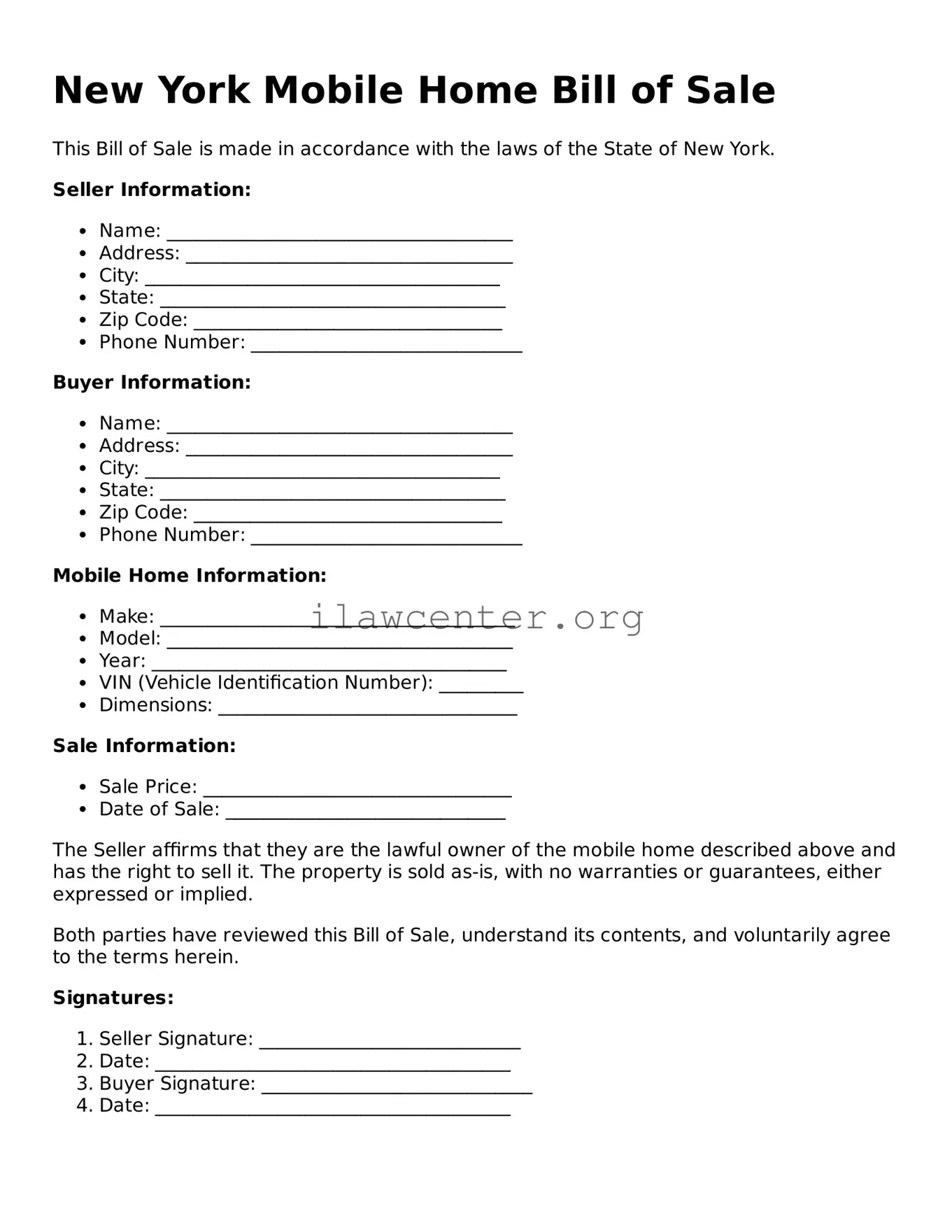Instructions on Utilizing New York Mobile Home Bill of Sale
Completing a Mobile Home Bill of Sale in New York is a straightforward process that helps facilitate the transfer of ownership of mobile homes. Following the steps below will ensure all required information is included, paving the way for a smooth transaction.
- Obtain the Form: Start by downloading the New York Mobile Home Bill of Sale form from an official source or your local government office.
- Enter Seller Information: Fill in the seller's full name, address, and contact details. Make sure this information is accurate.
- Enter Buyer Information: Next, provide the buyer's full name, address, and contact details.
- Describe the Mobile Home: Include essential details about the mobile home, such as the make, model, year, VIN number (Vehicle Identification Number), and any additional descriptions that clarify the item's condition.
- State the Sale Price: Clearly indicate the amount agreed upon for the sale of the mobile home.
- Signatures: Both the seller and buyer must sign and date the form. This step finalizes the agreement and confirms both parties accept the terms outlined.
- Notarization (if required): Some transactions may need to be notarized to be considered valid. Check local regulations to see if this applies.
Once you have completed the form, retain a copy for your records. The next step is to ensure any additional requirements, such as title transfer or local inspections, are fulfilled based on your unique situation.
